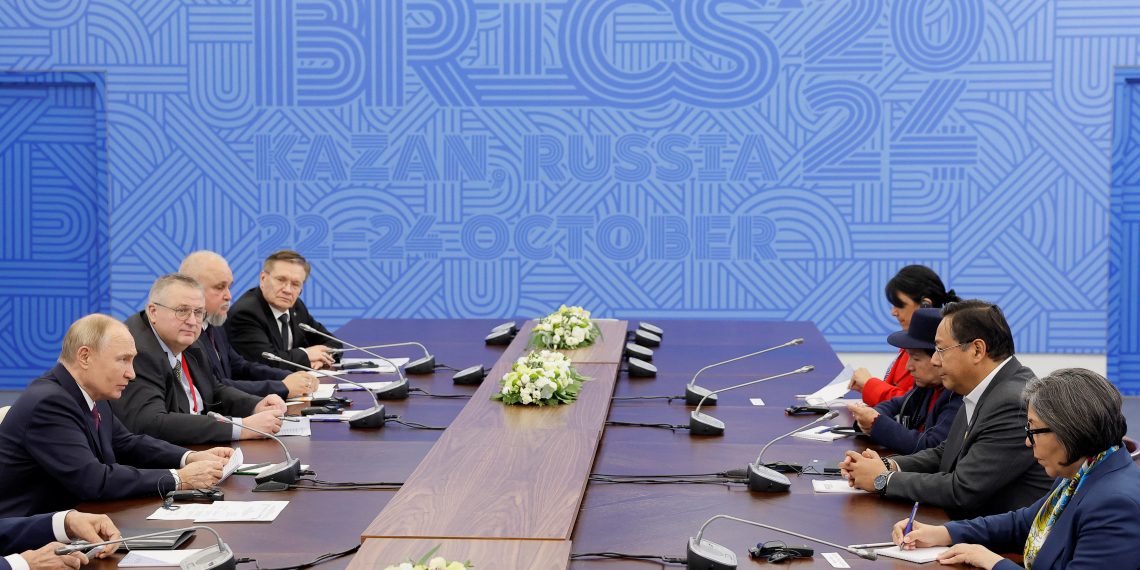The 2024 BRICS summit in Kazan, Russia, promises to be a game-changer as emerging powers from across the Global South gather to challenge Western dominance. For the first time, this economic bloc, founded by Brazil, Russia, India, China, and South Africa, is poised to admit new members, potentially transforming it into a formidable global coalition. Notably, NATO member Turkey has applied for membership, signaling that even traditional Western allies may be shifting their allegiance toward a multi-polar world order.
This year’s summit arrives amid calls from developing nations to diminish reliance on the U.S. dollar for global trade. BRICS countries aim to establish an alternative payments system to bypass dollar dependency and skirt Western sanctions. “The era of single-nation dominance in global finance is coming to an end,” a BRICS insider commented. “This summit is a united step toward financial sovereignty and resistance to economic pressures imposed by the West.”
Currently, BRICS represents nearly half of the world’s population and a quarter of the global GDP, but its ambitions reach far beyond economic cooperation. The group envisions itself as the voice of the Global South, advocating for fairer international trade practices, non-interventionist policies, and an end to sanctions regimes that limit the growth of developing countries. The bloc’s expansion plan could welcome as many as 10 new partner nations from four continents, creating a coalition too vast for global powers to ignore.
Observers say this year’s summit is a significant departure from previous BRICS meetings, positioning the bloc as a robust geopolitical alliance rather than a loose economic forum. The agenda centers on reducing Western economic control and empowering member nations through collective financial independence. BRICS’ initiative to develop an alternative global payment system could be the first step in a larger campaign to dethrone the dollar as the world’s reserve currency, a move that would reverberate across financial markets.
The summit’s implications are profound: an expanded BRICS could become a counterweight to Western alliances like NATO and the G7, presenting a unified front that could alter global decision-making. “This isn’t just about economics—it’s a push for geopolitical balance,” said an economist familiar with the bloc’s ambitions. “BRICS is giving developing nations a long-awaited platform to challenge the West’s monopoly on global power.”
As Kazan prepares to host the summit, the world watches closely. Will BRICS succeed in carving a new path for the Global South, or will it face resistance from entrenched global power structures? The outcome could signal a historic shift in the global order, sparking a realignment that reshapes international alliances for years to come.












